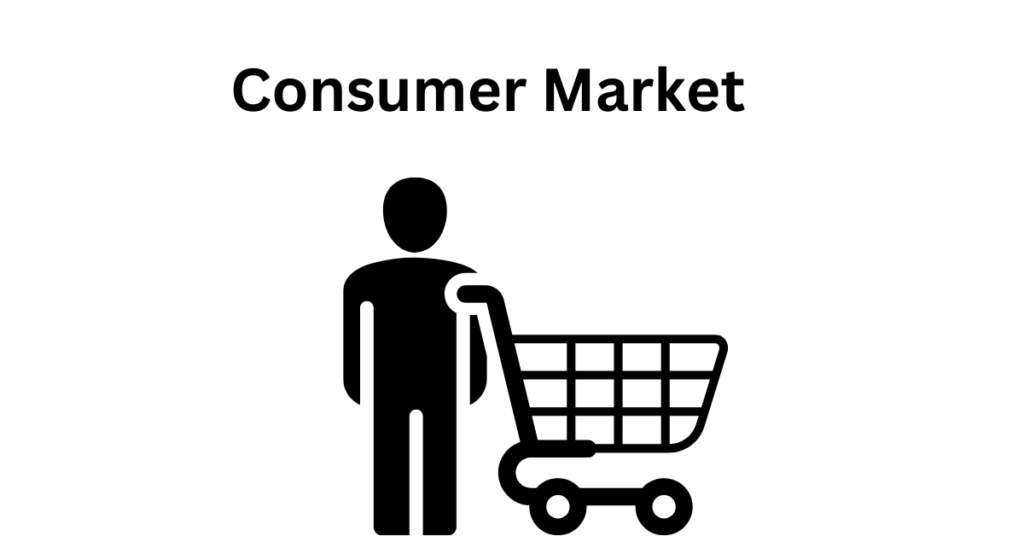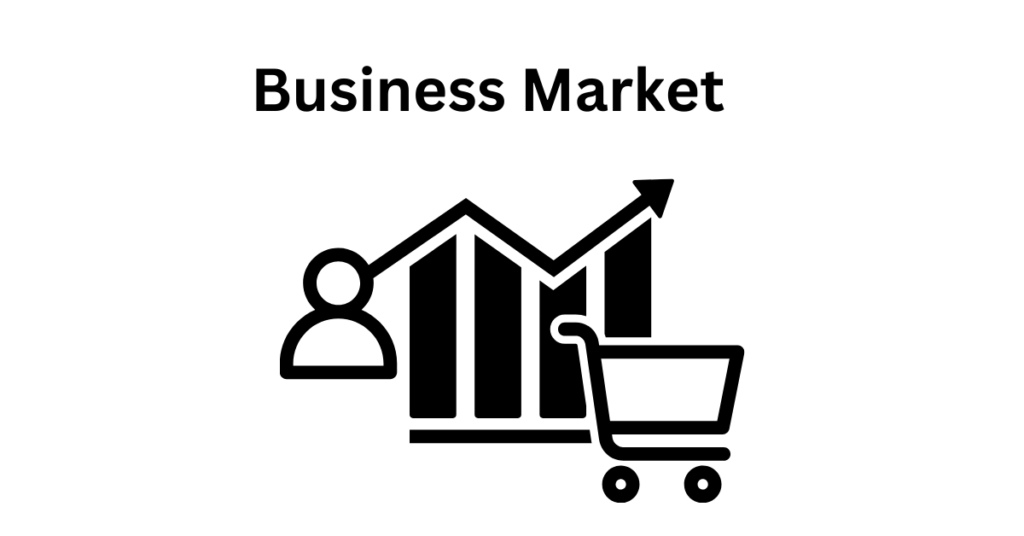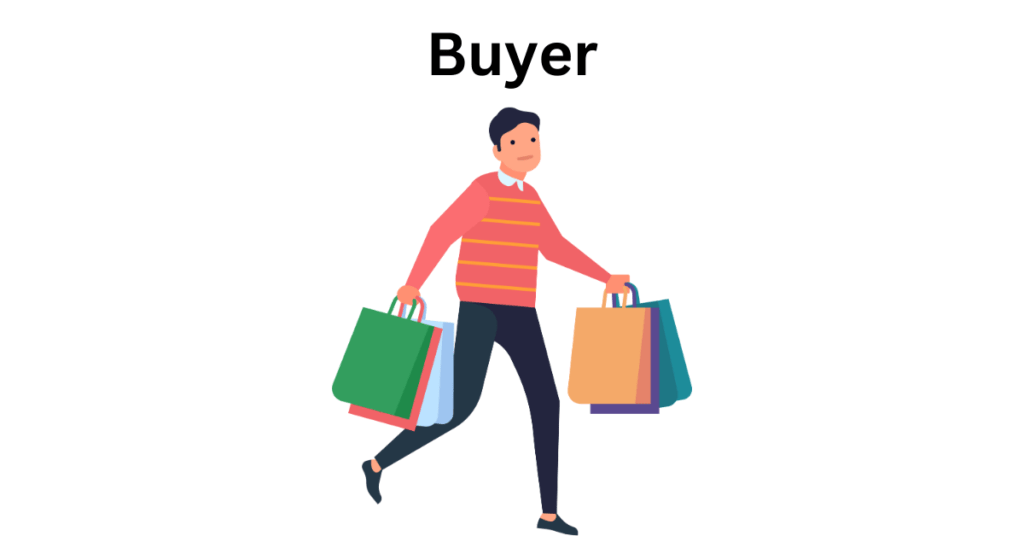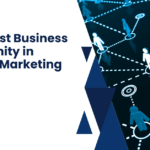Hey there! Have you ever wondered why some companies sell laptops to everyday folks like you and me, while others pitch massive software deals to big corporations? It’s all about the Business Market vs. Consumer Market—two totally different worlds in the game of buying and selling. Whether you’re grabbing a coffee at Starbucks or a company is ordering 500 desks for its new office, these markets shape how stuff gets sold, who’s buying it, and why.
In this article, we’re diving deep into the Business Market vs. Consumer Market showdown. We’ll break it down in a way that’s easy to vibe with—no jargon overload, just real talk. From who’s swiping the credit card to how decisions get made, we’ve got you covered. So, grab a snack, get comfy, and let’s unpack this together!
Overview: Understanding Consumer and Business Markets
Picture this: You’re scrolling through your phone, and an ad for a shiny new phone case pops up. You think, “Ooh, I need that!” and bam—you hit “buy.” That’s the consumer market in action. Now imagine a company negotiating a year-long contract for office supplies. That’s the business market flexing its muscles. The Business Market vs. Consumer Market debate is all about who’s on the buying end and what they’re after.
The consumer market is where businesses sell stuff—like clothes, gadgets, or snacks—straight to people like us for personal use. It’s fast, emotional, and all about making life better or more fun. On the flip side, the business market is where companies sell to other companies—think machinery, software, or bulk raw materials. It’s less about feelings and more about logic, efficiency, and profit.
Why does this matter? Because understanding the Business Market vs. Consumer Market helps companies figure out how to talk to their buyers, set prices, and even design their products. It’s like knowing the difference between chatting with your bestie versus pitching to your boss—same goal, totally different vibe.
MUST READ: World Best Business Opportunity in Network Marketing
Comparative Table: Business vs. Consumer Market
Let’s make this super clear with a quick table. Here’s a head-to-head look at the Business Market vs. Consumer Market:
| Feature | Consumer Market | Business Market |
|---|---|---|
| Buyers | Individuals or families | Companies or organizations |
| Purchase Goal | Personal use or enjoyment | Business operations or resale |
| Order Size | Small (one phone, one shirt) | Large (100 laptops, bulk steel) |
| Decision Time | Quick and emotional | Slow and calculated |
| Price Sensitivity | High (we hate overpaying!) | Lower (value matters more) |
| Marketing | Ads, influencers, deals | Trade shows, negotiations, demos |
This snapshot shows how the Business Market vs. Consumer Market plays out in real life. Keep this in mind as we dig deeper—it’s like the cheat sheet for what’s coming next!
What is a Consumer Market? , Definition

Let’s start with the consumer market—our playground! Definition time: The consumer market is where businesses sell products or services directly to people (that’s us!) for personal use or enjoyment. Think of it as the B2C world—B2C meaning “business-to-consumer,” the setup where companies like Apple or Nike hook us up with phones or sneakers.
This market’s massive. With 8 billion people on Earth, most of us are buying daily—global e-commerce alone hit $5.2 trillion in 2022, per Statista. In the U.S., consumer spending reached $14.5 trillion that year, says the Bureau of Economic Analysis. It’s all about emotions here—we see a slick ad, feel the hype, and swipe our cards. A 2023 PwC survey found 73% of us ditch brands if prices spike or quality flops—we’re picky like that.
Take fast food as an example. McDonald’s pumps out burgers for us to munch on the go. Their game? Speed, taste, and deals—$1 coffee anyone? That’s the consumer market’s pulse: quick, personal, and driven by what feels good. The Business Market vs. Consumer Market difference starts with this vibe—we’re all about instant gratification.
let’s zoom into the consumer market first. This is the world where you and I live—where we buy stuff because it’s cool, useful, or just makes us happy. The consumer market is all about businesses selling directly to regular people (that’s the B2C—business-to-consumer—scene). Think about picking up a new hoodie, ordering takeout, or splurging on a concert ticket. That’s the consumer market doing its thing.
What’s awesome about it? It’s massive. Millions of us are out there shopping every day, making snap decisions based on how we feel. Maybe you saw a TikTok video hyping up a skincare brand, and now you’re obsessed. That’s the power of the consumer market—emotions drive the wheel, and businesses know it. They hit us with flashy ads, discounts, and vibes to get us hooked.
But here’s the catch: We’re picky. If the price is too high or the vibe’s off, we’re out. The Business Market vs. Consumer Market difference starts here—consumers like us are all about instant gratification, while businesses play a longer game.
MUST READ: what is the salary of company secretary, Roles, Benefits & Growth
What is a Business Market? , Definition

Now, let’s flip to the business market—where companies get serious. Definition alert: The business market is where businesses sell goods or services to other businesses for use in operations, production, or resale. This is B2B territory—B2B meaning “business-to-business,” like when Microsoft sells cloud software to a bank.
Scale’s the name of the game here. Fewer buyers, but holy wow, the deals are huge. A single contract can outshine a year of consumer sales—like IBM’s $1 billion cloud deal with a bank in 2022, per Forbes. Globally, B2B e-commerce hit $14.1 trillion in 2023, per Statista, and it’s climbing fast. Unlike us emotional consumers, these buyers are all about logic and ROI—meaning “return on investment,” the profit or savings they’ll get from the purchase.
Real example? Think Caterpillar Inc. selling $500,000 excavators to construction firms. No impulse buys here—it’s specs, demos, and negotiations. The Business Market vs. Consumer Market divide shines bright: It’s less “ooh, I want it” and more “prove it works.” Trust and data rule this world.
This is where companies sell to other companies—aka the B2B (business-to-business) zone. Imagine a factory buying steel to make cars or a tech firm snagging cloud software for its team. That’s the business market in action.
Unlike the consumer market, this isn’t about impulse buys or cute packaging. It’s about solving problems, cutting costs, and boosting efficiency. The buyers here aren’t swayed by a catchy jingle—they want data, demos, and deals that make sense for their bottom line. The Business Market vs. Consumer Market split gets real obvious when you see how serious and strategic this side is.
And here’s the kicker: One business deal can be worth thousands (or millions!) of consumer sales. A single contract could mean supplying 500 desks or a year of IT support. It’s high stakes, and the players know it. That’s why relationships and trust are gold in the business market—way more than in the consumer world.
Key Differences Between Consumer and Business Markets
Alright, let’s get into the nitty-gritty of the Business Market vs. Consumer Market. These two aren’t just different—they’re like apples and oranges. Here’s how they stack up across a bunch of key areas. Buckle up—this is where it gets juicy!
Buyers
In the consumer market, it’s us—individuals or families buying for personal kicks. Definition: Buyers here are the end-users, the ones actually using the stuff. In the business market, it’s companies or organizations—buyers meaning entities purchasing for operational or resale purposes. The Business Market vs. Consumer Market split kicks off with this: me vs. “the biz.”

Example: You buy a $10 pizza. A restaurant chain buys 1,000 ovens for $500,000. Same food game, different players.
First up: Who’s buying? In the consumer market, it’s you, me, our friends—regular people shopping for ourselves or our families. We’re the endgame, the ones actually using the stuff. But in the business market? It’s companies, organizations, or even governments. They’re not buying for fun—they’re buying to keep their operations humming or to resell later. The Business Market vs. Consumer Market divide starts with this basic “who.”
Number of Consumers
Scale’s a biggie. The consumer market’s a party—billions of us making small buys daily. In 2022, 2.14 billion people shopped online, per Statista. The business market? A VIP list—fewer buyers, but each one’s a heavyweight. Definition: Number of consumers refers to the total pool of active buyers. One B2B deal can match millions of consumer sales. That’s the Business Market vs. Consumer Market crowd difference.
Data: Amazon’s consumer sales hit $514 billion in 2022; its B2B arm, Amazon Business, did $35 billion with way fewer clients.
Scale’s a big deal here. The consumer market is like a giant party—millions of people making small purchases every day. It’s a numbers game with tons of tiny transactions. The business market? More like an exclusive club. Fewer buyers, but each one’s a heavyweight. One business might order enough to equal thousands of consumer sales. That’s a huge Business Market vs. Consumer Market difference in crowd size.
MUST READ: What Is Marketing Strategy How It Works a Complete Guide
Money
Decision Processes
Consumers are fast—decision processes meaning the steps to say “yes” to a buy. A 2022 Shopify stat says 54% of online purchases happen within an hour. Businesses? Slow and steady—decision processes here mean multi-step evaluations with multiple stakeholders. Gartner says B2B deals involve 6.8 decision-makers on average. The Business Market vs. Consumer Market gap is gut vs. grind.
Example: You grab a $20 shirt in minutes. A retailer takes 2 months to pick a $20,000 supplier.
Advertising
Marketing’s a mood. In the consumer market, advertising means mass campaigns to grab our attention—think $614 billion spent globally in 2023, per eMarketer. In the business market, advertising means targeted pitches—$200 billion spent, says Statista, on stuff like trade shows. The Business Market vs. Consumer Market ad split is loud vs. laser.
Real talk: Pepsi’s Super Bowl ad hooks us; SAP’s whitepaper hooks CFOs.
Products
Services
Services follow a similar vibe. For consumers, it’s quick fixes—think haircuts or streaming subscriptions. For businesses, it’s ongoing support—like IT maintenance or supply chain logistics. The Business Market vs. Consumer Market service split reflects how personal versus operational the focus is.
Purchase Processes
Buying’s a journey. In the consumer market, it’s a sprint—click, pay, shipped. Done. In the business market, it’s a marathon—proposals, approvals, negotiations, delivery schedules. The Business Market vs. Consumer Market process difference is all about complexity and time.
Price Increases
Price hikes hit different. Consumers freak out if coffee jumps a buck—we’ll switch brands in a heartbeat. Businesses? They’ll grumble, but if the product’s critical, they’ll stick around. Loyalty’s higher in the Business Market vs. Consumer Market when it comes to price tolerance.
New Customers
Finding new buyers is wild. Consumer markets cast a wide net—ads everywhere, hoping to hook anyone. Business markets target specific players—think reaching out to a CEO or procurement team directly. The Business Market vs. Consumer Market chase for newbies is broad versus laser-focused.
Customer Acquisition and Retention
Keeping folks happy matters in both, but the how is different. Consumer markets rely on deals, loyalty perks, and good vibes to keep us coming back. Business markets lean on relationships—think regular check-ins or custom solutions. The Business Market vs. Consumer Market retention game is personal versus partnership.
Frequently Asked Questions (FAQs) on Business vs. Consumer Markets
Still got questions? Let’s tackle some common ones about the Business Market vs. Consumer Market with real, human answers.
Q: Which market is bigger—business or consumer?
A: Depends on how you look at it! The consumer market has way more buyers, but the business market has bigger deals. It’s like comparing a million $5 sales to one $5 million contract.
Q: Why do businesses take so long to buy stuff?
A: They’re not impulse shopping! Companies need to check budgets, get approvals, and make sure it fits their goals. It’s a team effort, not a solo splurge.
Q: Can a company play in both markets?
A: Totally! Think of Apple—selling iPhones to us (consumer) and cloud services to businesses. Smart companies juggle both sides of the Business Market vs. Consumer Market coin.
Q: Which market is tougher to crack?
A: Consumer’s tricky because we’re fickle—trends change fast. Business is tough because trust and proof take time to build. Both have their battles!
Q: How do emotions play into these markets?
A: Consumers run on feelings—joy, fear, excitement. Businesses lean on logic, but don’t sleep on trust—it’s the quiet emotion in the Business Market vs. Consumer Market mix.
Wrapping It Up
So, there you have it—the full scoop on Business Market vs. Consumer Market. Whether it’s you snagging a new pair of kicks or a company locking in a fleet of delivery vans, these markets shape how the world spins. The consumer side’s all about us—fast, fun, and personal. The business side’s about strategy, scale, and solutions. Both are vibes in their own right, and honestly, it’s pretty cool to see how they vibe together in the big picture.
Riyo is a Digital Marketing expert with specialization in SEO and Market Analysis. He has hands-on experience in keyword research, on-page & off-page SEO, and data-driven marketing strategies. Riyo helps businesses boost their online visibility and grow through smart digital tactics.


